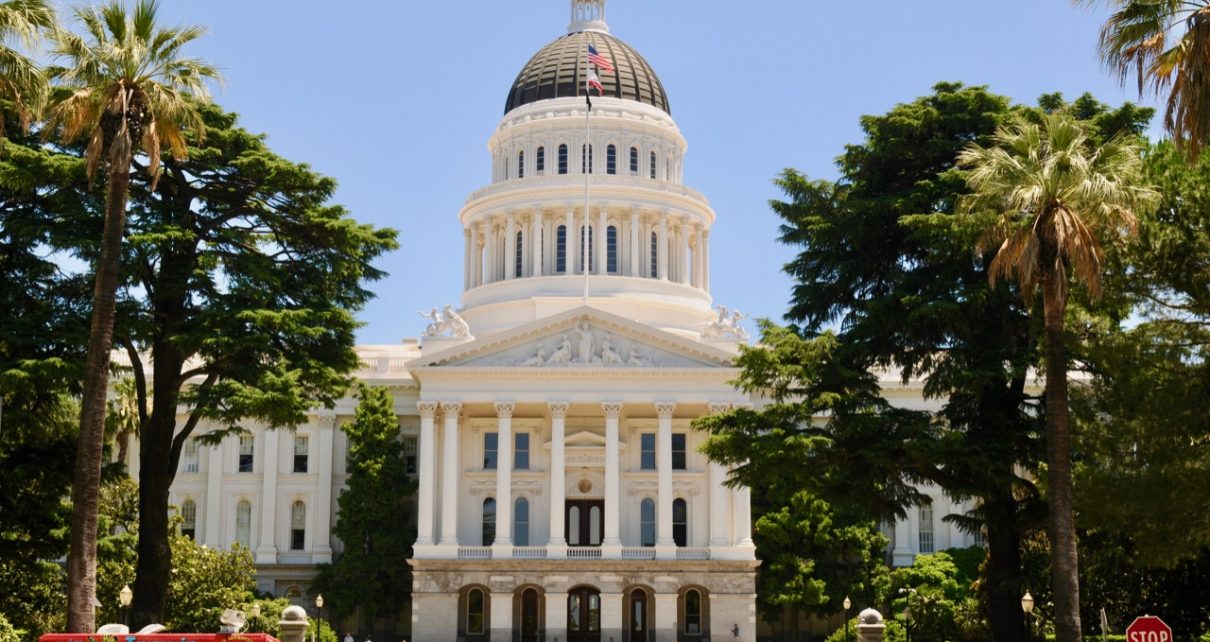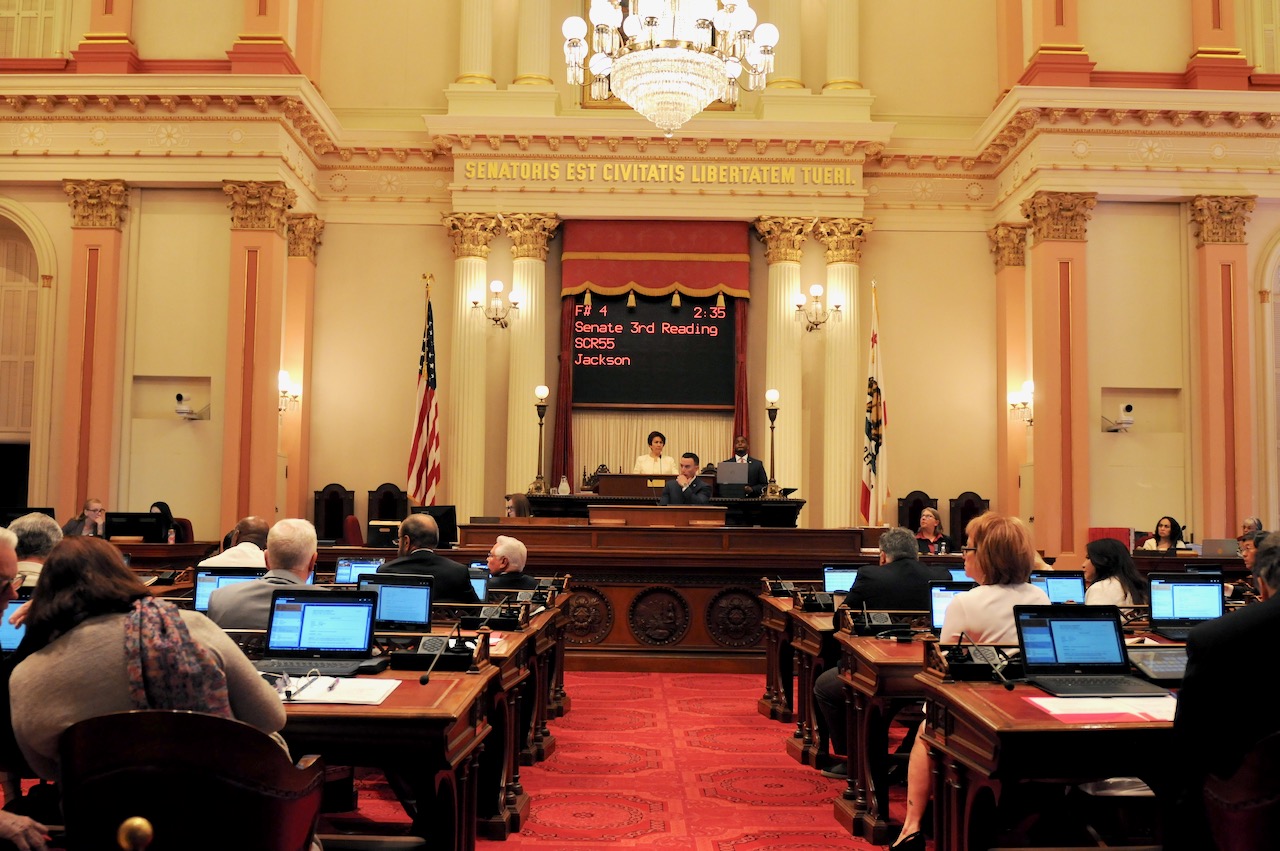
California State Capitol. (Photo: Kevin Sanders for California Globe)
Formal Roles of Governor and Lt. Governor in Lawmaking
‘The Governor shall see that the law is faithfully executed’
By Chris Micheli, September 16, 2022 6:36 pm
Both the California Governor and the Lieutenant Governor have formal roles in the lawmaking process, despite the fact that this authority is granted to the legislative branch of state government pursuant to Article IV of the California Constitution. Article IV, Section 1 provides: “The legislative power of this State is vested in the California Legislature which consists of the Senate and Assembly, but the people reserve to themselves the powers of initiative and referendum.”
On the other hand, Article V, Section provides: “The supreme executive power of this State is vested in the Governor. The Governor shall see that the law is faithfully executed.” Nonetheless, Article IV has several provisions that specify the role of the Governor in the lawmaking process.
For example, in Article IV, Section 2(d), it requires that, “when a vacancy occurs in the Legislature[,] the Governor immediately shall call an election to fill the vacancy.”
Article IV, Section 3(b) specifies, in part, the following: “On extraordinary occasions the Governor by proclamation may cause the Legislature to assemble in special session.”
Article IV, Section 8(b)(2), allows only one exception to the 72-hour in print rule, which is that this notice period may be waived if the Governor has submitted to the Legislature a written statement that dispensing with this notice period for that bill is necessary to address a state of emergency … that has been declared by the Governor…
Of course, Article IV, Section 10(a) requires “each bill passed by the Legislature shall be presented to the Governor.”
And, Article IV, Section 10(e) provides the “blue pencil” authority to the Governor. It provides, in part, the following: “The Governor may reduce or eliminate one or more items of appropriation while approving other portions of a bill.”
Article IV, Section 12(a) requires the Governor to present the proposed budget for consideration by the Governor. It provides, in part, the following: “Within the first 10 days of each calendar year, the Governor shall submit to the Legislature, with an explanatory message, a budget for the ensuing fiscal year containing itemized statements for recommended state expenditures and estimated state revenues.”
Finally, Article IV, Section 19(f) provides, in part, that “the Governor is authorized to negotiate and conclude compacts, subject to ratification by the Legislature, for the operation of slot machines and for the conduct of lottery games and banking and percentage card games by federally recognized Indian tribes on Indian lands in California in accordance with federal law.”
It is interesting to note that the “Governor” is mentioned 42 times in Article IV.
In Article V, the executive branch of government, there are additional provisions related to the lawmaking process. For example, Article V, Section 3 provides: “The Governor shall report to the Legislature each calendar year on the condition of the State and may make recommendations.”
In addition, Article V, Section 8(a) requires the Governor to “report to the Legislature each reprieve, pardon, and commutation granted, stating the pertinent facts and the reasons for granting it.” Section 8(b) also requires the Governor to “report to the Legislature each parole decision affirmed, modified, or reversed, stating the pertinent facts and reasons for the action.”
It is interesting to note that the “Legislature” is mentioned 10 times in Article V.
In turning to the Lieutenant Governor, Article V, Section 9 states, in full: “The Lieutenant Governor shall have the same qualifications as the Governor. The Lieutenant Governor is President of the Senate but has only a casting vote.”
As a result, while the Lt. Governor is the President of the Senate, the Lt. Governor only has one role: to vote when there is a tie in the 40-member Senate. The term “casting vote” is defined by the Office of Legislative Counsel as the deciding vote the Lieutenant Governor may cast in the case of a tie vote in the Senate.
- Interpretation of Obligations - December 15, 2024
- Sabotage Prevention Act - December 14, 2024
- Why Would the Legislature Request? - December 13, 2024





One thought on “Formal Roles of Governor and Lt. Governor in Lawmaking”